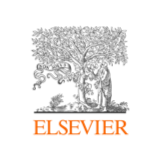Translational Bioinformatics and Computational Genomics Lab
Our lab research goal is to identify and develop gene signatures for human diseases using underlying principles of gene expression and to explore how variations or defects in gene regulation cause phenotypic variation or diseases. We conduct our research using an integrative approach along with bioinformatics we also incorporate genomics, transcriptomics. Currently working on drug designing and Next generation sequencing of tropical region diseases and Cancer.
Cancer Genomics and Bioinformatics
Existing projects are emphasized on meta-analysis of cancer gene expression studies. This will provide information of significant genes and aberrant pathways with more confidence level observed to be involved in a specific cancer type or are present at exclusive stage of cancer. We along with my collaborators working towards development of colorectal cancer based drug resistance cell lines and identification of drug resistance mutations. We have made repositories exclusively for colorectal cancer like Colorectal Cancer Gene Database (CoReCG) has been developed (lms.snu.edu.in/corecg) which contain all validated colon-rectal cancer genes information.
Disease Genomics
Complete transcriptome sequencing of patient samples to analyze the expression of genes which are differentially regulated neglected tropical diseases. Further, the co-expression of microRNAs, lncRNAs and coding genes, will be deciphered to disentangle the molecular pathways that are triggered during the progression of these diseases from early stage to advance stages or malignancy. We also study comprehensive screening of variants frequency in the sample population and expression of alternative transcripts which will elucidate the reason for the heterogeneity observed in these patients. Moreover, we also work on plant transcriptome based big data to identify gene signatures for plant abiotic stress using meta-analysis and systems biology approaches.
Genome Sequencing Project
Group is also working on whole genome sequencing and Transcriptomic Profiling and data analysis of multi-centric National Agriculture Science Fund (NASF) funded ICAR research project on Pashmina goat. Consortium leader: Sher-e-Kashmir University of Agricultural Sciences and Technology, Division of Biotechnology, Shuhama, Srinagar.
Bioinformatics Tools, databases and Softwares
We have made few very significant tools and databases, some of them are: Colorectal Cancer Gene Database (CoReCG) has been developed (lms.snu.edu.in/corecg) which contain all validated colon-rectal cancer genes information.
TM-Aligner: Multiple sequence alignment tool for transmembrane proteins with reduced time and improved accuracy. TM-Aligner (https://lms.snu.edu.in/TM-Aligner/) is an unrestricted (in terms of length and number of sequences) tool which can align transmembrane proteins even at low level of sequence identity, accurate alignment is possible at low sequence identity because biological membrane proteins have a transmembrane between cytoplasmic and extracellular regions. TM-Aligner has been designed as a unique global, progressive alignment method, with the aim of high-quality alignment which has almost no limitation over input data-set size. TM-Aligner uses UPGMA method to create an initial guide tree that describes sequence relatedness. To identify transmembrane regions TMHMM has been employed and alignment were made using dynamic programming and Wu-Manber string matching algorithm to calculate sequence distances and incorporate local matches in global alignment.
My research rely on the massive data production and analysis of large-scale data from high-throughput Next Generation Sequencing (NGS) or of microarray origin. Additionally, we are also interested in genetic linkage and association studies to identify disease associated genetic variants.
Educational Qualifications
2011: Ph.D. Banasthali University, Rajasthan
- 01/12 – Present Assistant Professor, Shiv Nadar University, Greater Noida
- 2012 Post Doctoral Fellow, Institute of Liver & Biliary Sciences, New Delhi
- 2011 Guest Faculty, TERI University, New Delhi
- 2010 Scientist, Mayar Biotech, Gurgaon
- 2009 Lecturer, Banasthali University, Banasthali, Rajasthan
- SHIV NADAR UNIVERSITY EXCELLENCE AWARD.
- Young Scientist Gold Medal with Cash Prize for the Best Research Paper and Oral Presentation Award at National Conference Environmental Problems in India and Challenges to Plant Biologists (EPICPB) 4-5 Feb 2011 at Varanasi.
- CSIR DIAMIOND JUBLIEE RESEARCH INETRNSHIP AWARD.
- Best Paper Award at HIV/AIDS and TUBERCULOSIS 2006 International Conference/ CME, held at AIIMS, New Delhi, India.
- CSIR Senior Research Fellowship (SRF) Award.
- Award for University Minor Research Project for the facilitation of Research on “Potential Drug Target Identification for M.tuberculosis”.
- Best Exhibitory Award at Bangalore Bio 2009.
- DBT, BITP program coordinator.
- ArticlesExploration of time series model for predictive evaluation of long-term performance of membrane distillation desalination2022 | Institution of Chemical Engineers
- ArticlespSATdb: a database of mitochondrial common, polymorphic, and unique microsatellites2022 | Rockefeller University Press
- ArticlesAutomAted RepeaT Identifier (AARTI): A tool to identify common, polymorphic, and unique microsatellites2022 | Elsevier B.V.









